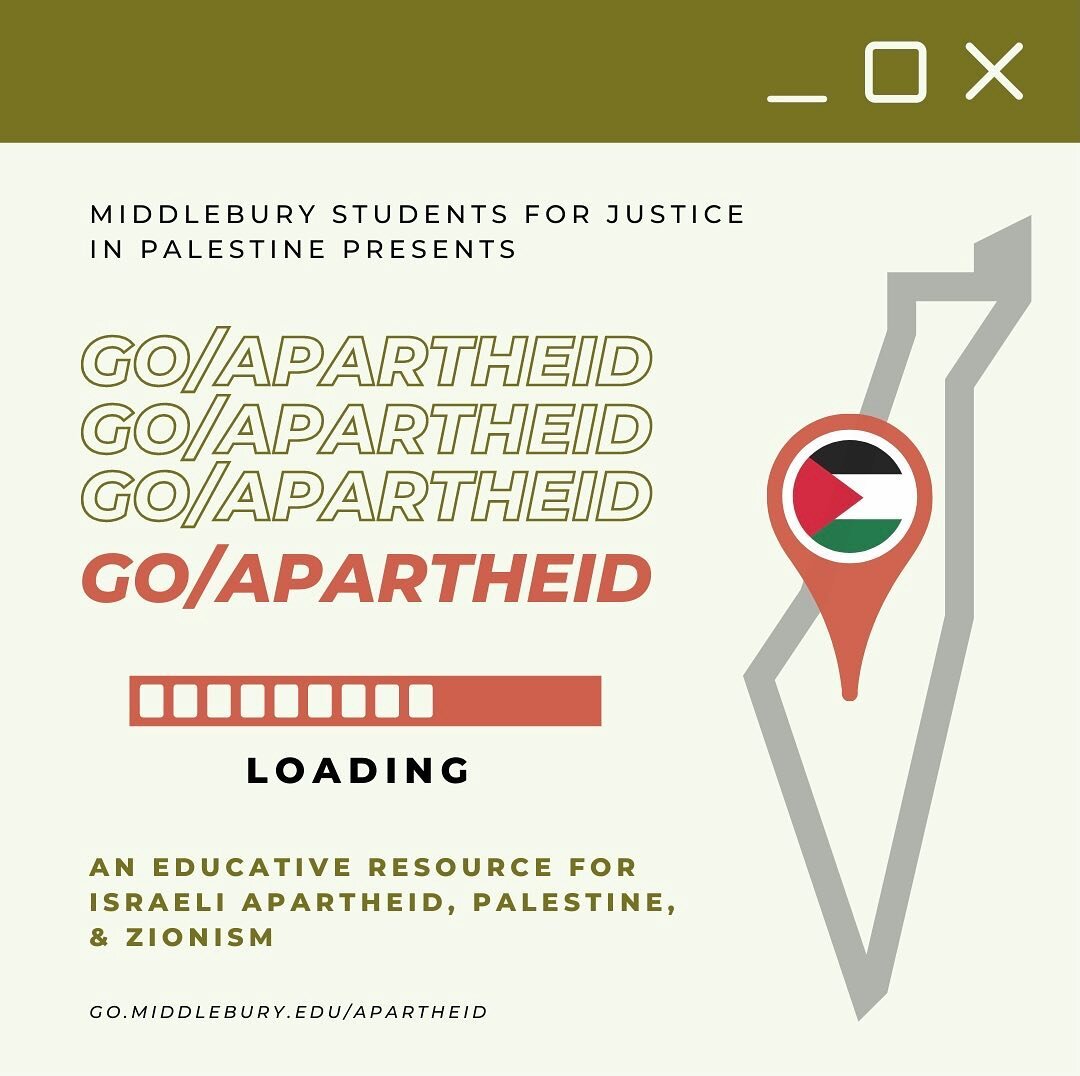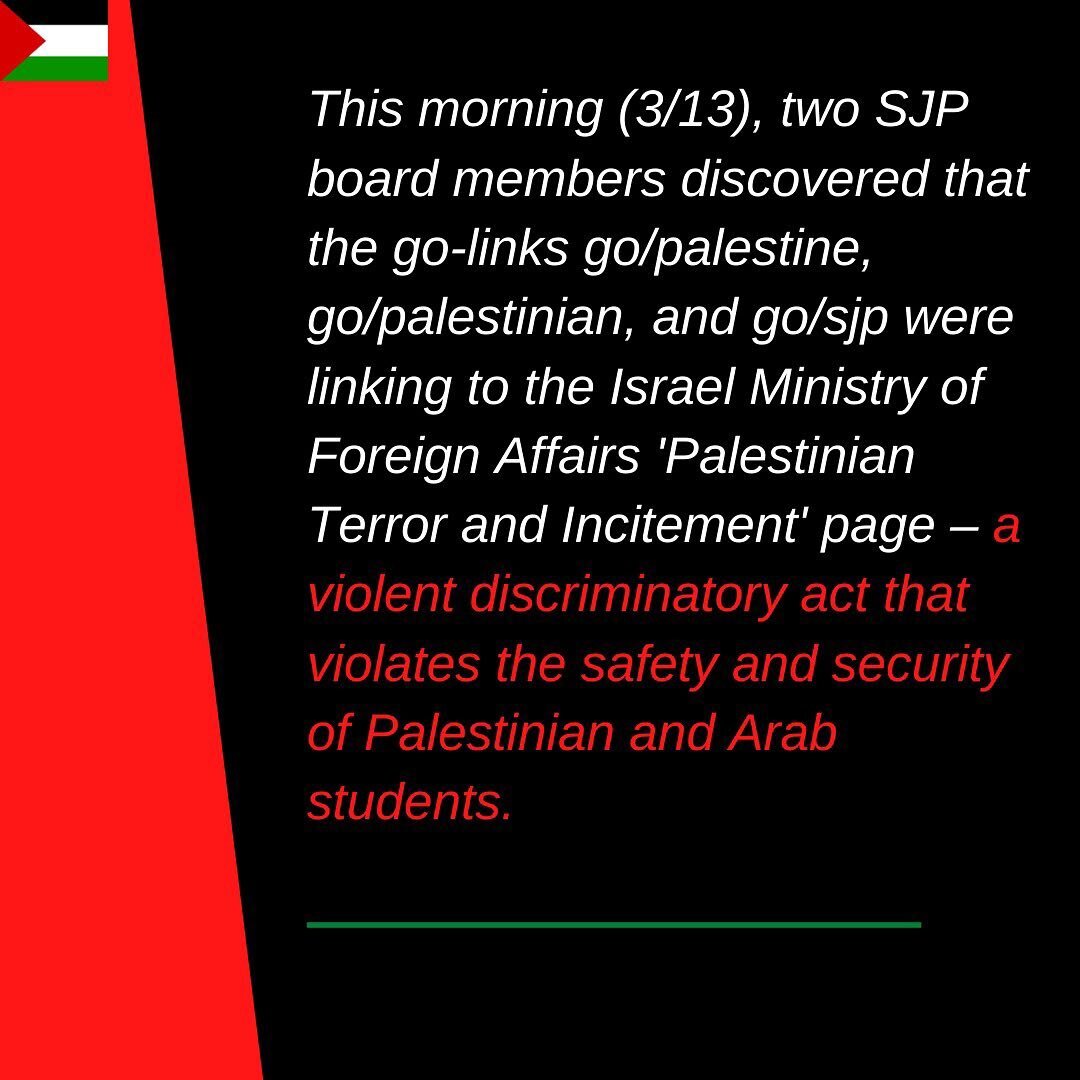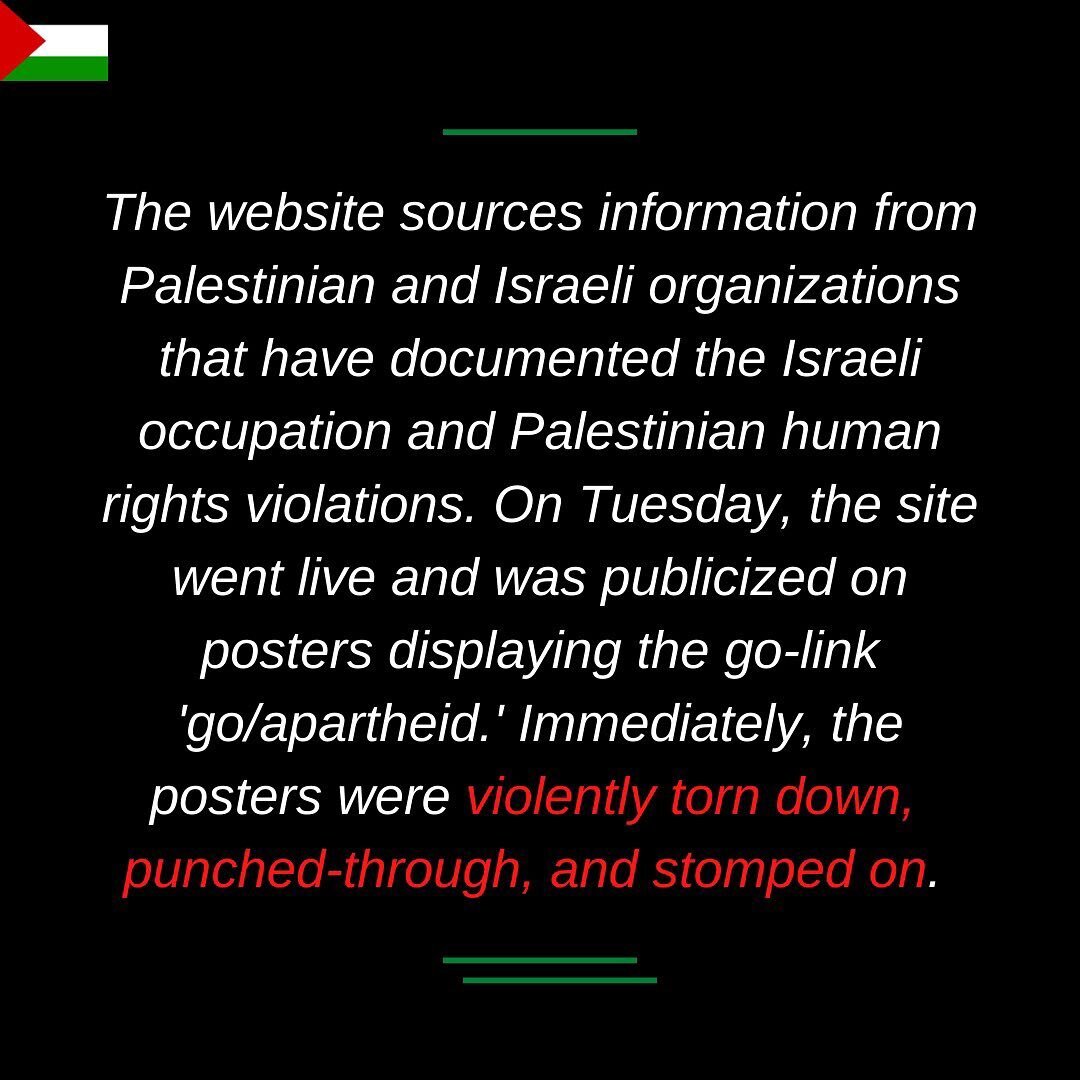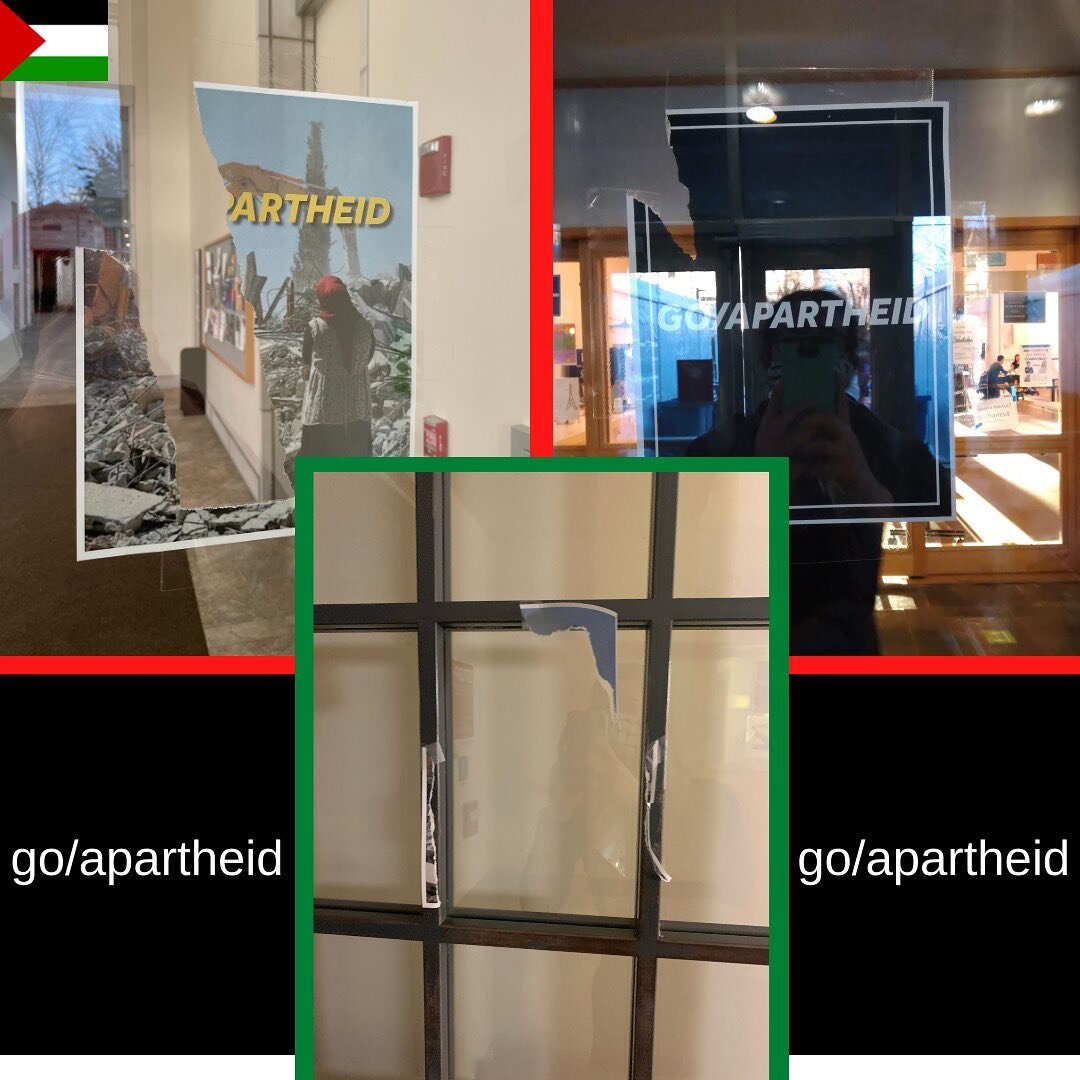Middlebury College Refuses to Support Palestinian Student Harassed After Criticizing Israeli Apartheid
/screenshot of Middlebury SJP’s anti-apartheid website.
After Students for Justice in Palestine (SJP) at Middlebury College launched a campaign against Israeli apartheid earlier this semester, the group’s anti-apartheid posters were vandalized, its Palestinian co-president received veiled threats, and its Jewish co-president was pressured to delete language critical of Zionism from SJP’s website.
Instead of unequivocally condemning the anti-Palestinian incidents, the administration issued a muddled statement associating advocacy for Palestinian equality with antisemitism. Middlebury has since refused students’ requests for action that would protect them from further threats and attacks, such as making a public statement condemning anti-Palestinian bias and recognizing SJP’s right to exist as a club on campus.
SJP’s anti-apartheid campaign takes place as Israeli forces attack protestors opposing forced evictions of Palestinians in occupied East Jerusalem and bomb Gaza, killing dozens of Palestinians, including children, and wounding hundreds.
A violation of civil rights
Palestine Legal wrote the College last week demanding it take swift action to protect Palestinian students — and students supporting Palestinian rights—and warning that the College’s failure to do so may violate the university’s obligations under Title VI of the Civil Rights Act of 1964 and its own speech policies.
“Despite a dozen emails informing the College of the hostile anti-Palestinian environment on campus, Middlebury officials sat on their hands and even exacerbated the situation—in apparent fear of the response from vocal anti-Palestinian students, their parents, and outside Israel advocacy groups,” said senior staff attorney Radhika Sainath. “Unfortunately for Middlebury, anti-Palestinian pressure campaigns by parents are no defense when it comes to a civil rights violation.”
A pattern of harassment
Palestine Legal’s 18-page letter describes a pattern of anti-Palestinian harassment at Middlebury starting in March, when SJP launched a campaign to educate their classmates about Israel’s apartheid system against Palestinians. SJP’s posters were torn down and the group was then attacked by an anti-Palestinian student, who edited campus website links about SJP and Palestine to redirect to a website smearing all Palestinians as terrorists.
Following the cyber smearing, SJP’s Palestinian co-president Kamli Faour was approached multiple times—including while brushing her teeth in her dorm—with veiled threats warning her of another student’s anger and “retaliation,” including that someone had to talk this student “...off a cliff” because another person “was afraid he’d do something.”
Anti-Palestinian parents even called on Middlebury to punish students supporting Palestinian equality and remove them from their housing.
Fearing for her safety
As a result of the threats she faced both on campus and online and the lack of action from administrators, Kamli began to debate whether she should leave campus and move back in with her parents. For four or five days, she did not leave her room out of fear for her physical safety—except to go to class and get food from the dining hall. Kamli was able to sleep only three to four hours a night and lost seven pounds during this period.
In the midst of this, Middlebury rescinded an offer to issue a no-contact order to protect Kamli against the student who had threatened her. Just 30 minutes after offering the order, Middlebury reversed course and stated it would only “inflame” the situation. This left Kamli feeling sick, confused, and even more worried for her safety.
“The College’s failure to condemn these acts of anti-Palestinian harassment has stripped Palestinian students of our safety, security, and ability to fulfill our academic potential,” said SJP co-president Kamli Faour. “Instead, the College has fostered an environment in which such hate is permissible, our experiences are diminished, and our voices are silenced.”
Smearing a Jewish Anti-Zionist
Kamli’s co-president Matthew Martignoni, who is white, Jewish and male-presenting, received no veiled threats despite the fact that they shared the leadership of SJP equally.
But Middlebury itself retaliated against Matt after they asked the College to address the anti-Palestinian environment and protect their Palestinian peer. Instead, an administrator accused Matt—who is the grandchild of Holocaust survivors—of antisemitism and told them to remove language from SJP’s website criticizing Zionism because it was “triggering” to Jewish students and “caused harm.”
“My conversation with the chief diversity officer confirmed that the college is prioritizing certain Jewish voices over others and would like to silence mine out of convenience,” said SJP co-president Matthew Martignoni. “In the process, they are shifting the conversation away from what’s really important: dismantling Israeli apartheid and the ethnic cleansing of Palestine. Zionist voices continue to dominate the narrative at Middlebury and that needs to stop.”
What we’re demanding
To rectify the harm done to Palestinian and Jewish students, Palestine Legal’s letter calls on Middlebury to:
Issue a public statement clearly and unequivocally stating that Students for Justice in Palestine has a right to exist on campus and that Middlebury will not tolerate anti-Palestinian harassment;
Apologize, in writing, for falsely accusing SJP’s Jewish co-president of antisemitism;
Mandate a training for the Community Bias Response Team on anti-Palestinian harassment and the Palestine exception to free speech;
Affirmatively recognize the right to advocate for Palestinian rights on campus and agree that the College will not adopt or enforce policies that limit speech supporting Palestinian rights.
Take Action
Learn More
Read about our Title VI complaint against Florida State University – the first ever complaint alleging discrimination against a student based on Palestinian national origin.







